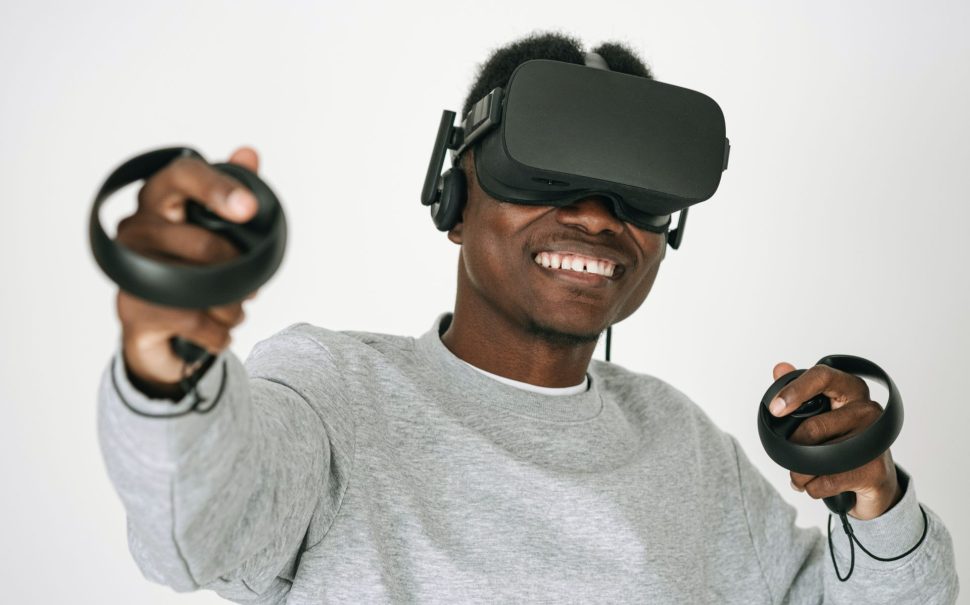The landscape of global entertainment is transforming at an unprecedented pace, ushering in an era driven by pioneering technologies and evolving consumption habits.
From immersive virtual reality escapades to personalised AI-curated content, the future of media is a world where the borders between reality and virtuality blur.
Traditional methods of media consumption are being revolutionised by cutting-edge technologies such as blockchain, cloud computing, and artificial intelligence, fundamentally altering the audience experience.
These shifts, together with the proliferation of streaming services and digital content, upend long-standing norms and make international entertainment more accessible to a wider audience.
With technology providing new opportunities for creativity and inclusivity, the future of media signifies a paradigm shift towards a more interactive, user-centric, and globally interconnected entertainment ecosystem.
As we hurtle towards this future, one thing is certain – the face of entertainment worldwide is changing, and the ride promises to be exhilarating.
The era of streaming services and over-the-top content
Over-the-top content services have been gaining popularity in recent years, thanks to the proliferation of streaming services such as Netflix, Amazon Prime, and Hulu.
These services have revolutionised the way audiences consume content, allowing them to watch their favourite shows and movies on demand, anytime and anywhere.
Streaming services have also given rise to an era of binge-watching, where viewers can watch entire seasons of their favourite shows in one sitting.
This has increased original content production by streaming services, leading to more diverse and inclusive entertainment options for viewers.
Moreover, streaming services have made international content more accessible to a global audience, breaking down cultural barriers and allowing people to enjoy content from different parts of the world.
This has led to a more diverse and cosmopolitan entertainment landscape, where audiences can experience different cultures and traditions from the comfort of their homes.
Artificial intelligence in content creation
Artificial intelligence (AI) is also playing a significant role in the future of media.
AI-powered content creation tools are being used to generate personalised content for audiences based on their viewing habits and preferences.
This has led to the creation of more personalised and engaging content tailored to the individual tastes of viewers.
AI is also being used to automate the production process, reducing the time and cost of creating content.
For instance, AI-powered video editing tools can automatically generate sports game highlights, eliminating the need for human editors to sift through hours of footage to find the best moments.
Virtual reality and augmented reality in immersive experiences
Virtual reality (VR) and augmented reality (AR) are also set to play a significant role in the future of media, providing a more immersive and interactive entertainment experience.
VR allows users to enter a completely different world to experience things they never thought possible.
For instance, VR can take users on a virtual museum tour or allow them to experience a live concert in 360 degrees.
AR, on the other hand, overlays digital content in the real world, creating a more interactive and engaging experience.
For instance, AR can be used to enhance the viewing experience of a live sports game, providing real-time statistics and analysis to viewers.
VR and AR are also being used for educational purposes, allowing students to experience history and science more effectively.
This has led to a more engaging and effective learning experience, where students can learn by doing rather than just reading or watching.
Interactive entertainment and the rise of different ways to game
The gaming industry has always been at the forefront of innovation, and the rise of new technologies has opened up new avenues for creativity.
One of the most significant trends in gaming is the shift towards interactive entertainment, where the user is an active participant in the experience.
Cloud gaming is one of the most exciting developments in interactive entertainment.
With cloud gaming, users can stream games over the internet without the need for expensive hardware.
This technology has the potential to make gaming more accessible and inclusive.
Another trend in interactive entertainment is the rise of mobile gaming, as with the increasing power of smartphones, mobile gaming has become a significant market.
One of the most popular forms of interactive entertainment is online gambling.
Online casinos with a digital portal have become increasingly popular, offering a range of games and experiences for users to browse and enjoy.
The rise of online gambling has however also created new challenges, such as addiction and fraud.
Another area where interactive entertainment is expected to grow is in the realm of location-based experiences.
These experiences take place in physical spaces but are enhanced by digital elements.
For example, escape rooms that use augmented reality to provide clues and puzzles or theme parks that use VR to create fully-realised environments.
Bottom line
The future of media is an exciting and constantly evolving landscape driven by emerging technologies and changing audience habits.
From streaming services and over-the-top content to VR and AR experiences and interactive entertainment, the possibilities are endless.
As we hurtle towards this future, it’s important to stay curious, open-minded, and ready to embrace new opportunities for creativity and inclusivity.





